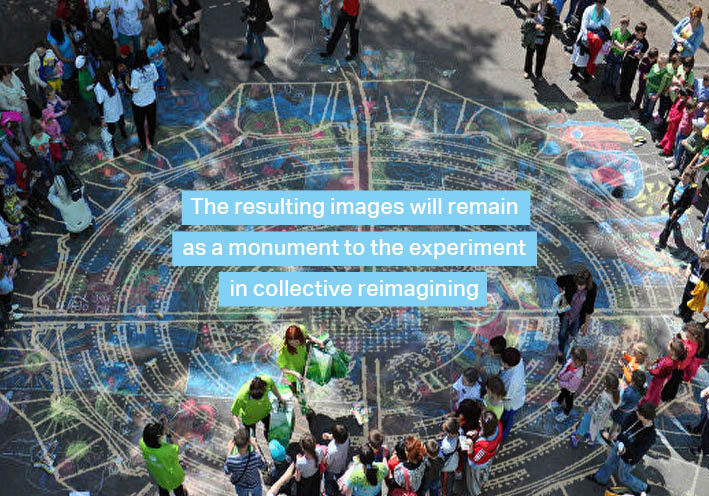This is a report from the second planning meeting for our Visual Assembly (Health Care system/NHS/UK), which took place on 4 July 2020, in virtual space, though mainly in London..
Thank you all for being with us!
We started with the 1st test assembly “City of Care”, that David Graeber and myself organized in Portobello Road along with friends from Extinction Rebellion and Art Strike.
A longer description can be found here.
The event was an experiment; it was in part just for fun, but at the same time, we were trying to create tools that could be used for real social change—that is, for events that were not just art-provocations or ways of having fun. Because ultimately, not only is collectively solving real problems a genuinely pleasurable experience, if done right, but the pleasure in working out purely imaginary problems runs out pretty quickly.
For this reason, we decided that the next Visual Assembly would focus on a specific pressing problem. Hence the decision to organize Health System Assemblies in London. After all, the original thoughts about combining offline and online came to us during the lockdown; it was a product of the public health situation.
The 2nd Visual Assembly project was initiated by Tae Ateh, David Graeber, and myself. We decided to begin with several preparatory sessions. During the first, we were joined by Alia Butt, Dr Alia Haider, Drew McFadyen, Fabian Tompsett, Hagir Ahmed, James Stopfoth, Paul Engers and some other friends. Last Saturday (July 4) we held the second, which included a wide-ranging discussion, over the course of which it became increasingly clear that we couldn’t proceed directly to brainstorming stencils and visual frameworks until we had worked out certain conceptual problems – for instance, the focus on the hospital as a unit to be redesigned, the nature of the community we were assuming (national, local, planetary…), and finally, the very existence of “health” as a field separated from other aspects of life. Obviously, these problems could not be resolved, but we decided to keep the focus on hospitals but try to reimagine their relation with a broader community. The discussion culminated in a decision to organize a series of working groups:
- health professionals’ working group (this would include anybody who is working inside of what we will call “Hospital” – a closed space where the patients could be treated: from doctors to cooks, nurses, cleaners and so on). For example: In the first meeting, James Stopfoth accurately pointed out one of the problems of hospitals’ internal organization, which, for example, strictly separate the specific medical care and psychological care for patients, although it is well known that these are deeply related issues.
- logistics working group: this might include anyone from architects to patients, from economists to filmmakers. The best way to describe this group’s aim would be a remark of Fabian Tompsett, who pointed out that many hospitals in England receive significant income from the paid car parks they build, specifically avoiding access by public transport. This group’s task could be to collect a list of similar questions that shape the hospitals themselves, from the relationship with the big pharma to patient access to before and aftercare.
- patients’ working group (anyone and all of us).
On further consideration, I might myself suggest adding one more working group and call it “preventive care.”
Participation in one group does not in any way imply you should not participate in any or all of the other ones. If anyone is interested in taking part, or knows anyone else who would like to (hint hint), please do write to us:
dubrovsky — gmail — com
or we@v-a.city
I see the artistic element in the project not as propaganda, not as a way of promulgating certain answers and solutions – even ones that emerge from a democratic process during the assemblies and planning sessions themselves – but rather, as a way of creating a framework that anyone can use to discuss similar problems (involving health and care), and come up with their own solutions.
Our next session will take place in a week. Like all our Assemblies, it will be open to the public. We will try to invite interesting speakers to participate, as well as report-backs from each working group.
